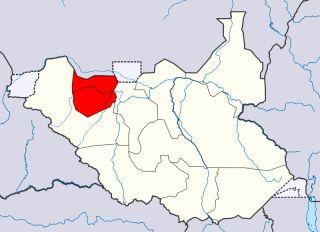N.Bahr el Ghazal defends household taxes, says part of budget
April 22, 2013 (JUBA) – The Finance minister of South Sudan’s Northern Bahr el Ghazal state on Monday defended collection of household taxes citizens, saying it was part of its budget.
 Madut Santino Deng also refutes earlier claims that the household tax matter resulted from cuts in grants disbursed to the state by the Juba-based central government.
Madut Santino Deng also refutes earlier claims that the household tax matter resulted from cuts in grants disbursed to the state by the Juba-based central government.
Deng, in response to a story published by Sudan Tribune, insists household taxes were being imposed on all citizens, regardless of their income levels and categories.
According to the minister, 60% of the taxes will remain at the counties where collection of the local revenue is generated, while the remaining 40% will go to the state government to support day to day activities.
He denied ever mentioning that 150 people in the state were arrested allegedly over failure to pay household taxes.
“I want to make clarification on two issues in the [Sudan Tribune] article. One thing, I want to know is the connection of the taxes and the arrest. What is the connection of the ministry in the arrest here? I did not say 150 have been arrested. This part is being misunderstood,” the minister stressed.
He further said taxes collected were part of the budget requirement and needed to be properly understood by the public.
Deng, however, said the state government would conduct investigations into allegations that some people have been arrested because of failure to pay the required household taxes.
“Investigation to establish facts about these allegations will be established through appropriate administrative channels”, he said, neither denying nor confirming the arrests of mainly women and the elderly.
In a series of interviews, local residents and chiefs said up to 170 people have been arrested. The numbers, they claimed, could either go up or decline, depending on whether those arrested paid the required tax or not.
Aweil East country, according to statistics seen by Sudan Tribune, leads with 83 people held at different places, followed by Aweil North county (29), Aweil South (27), Aweil West (18) and Aweil town (14), respectively.
South Sudan launched austerity measures at all levels of government last year after Juba lost 98% of its revenues when a transit fee dispute with Khartoum led to the young nation halting production for over a year.
However, oil production resumed this month, following last year’s Cooperation Agreement, which Sudan and South Sudan signed in Addis Ababa, Ethiopia.
(ST)
